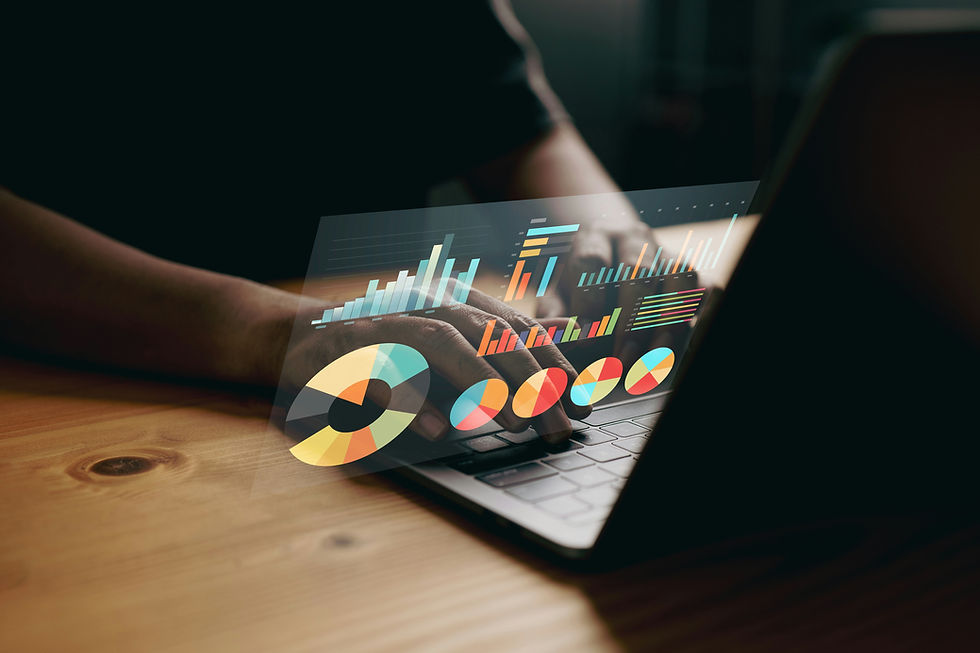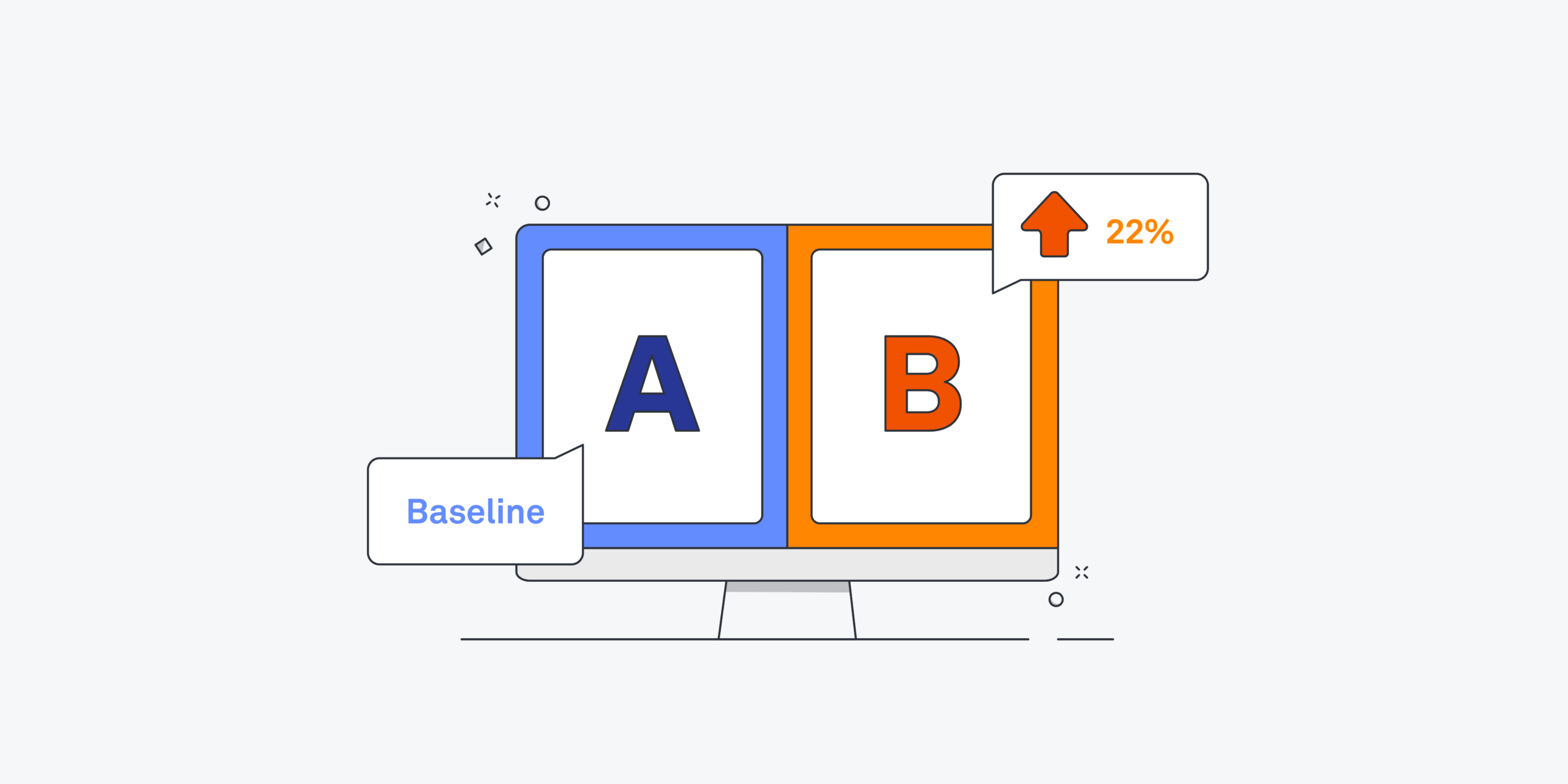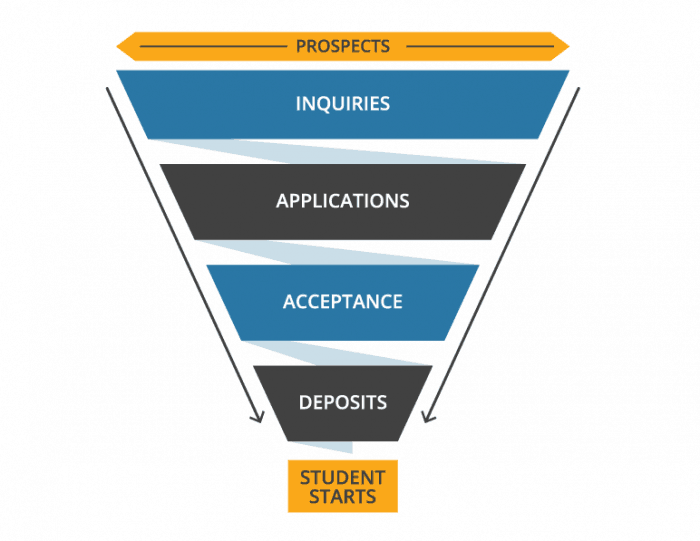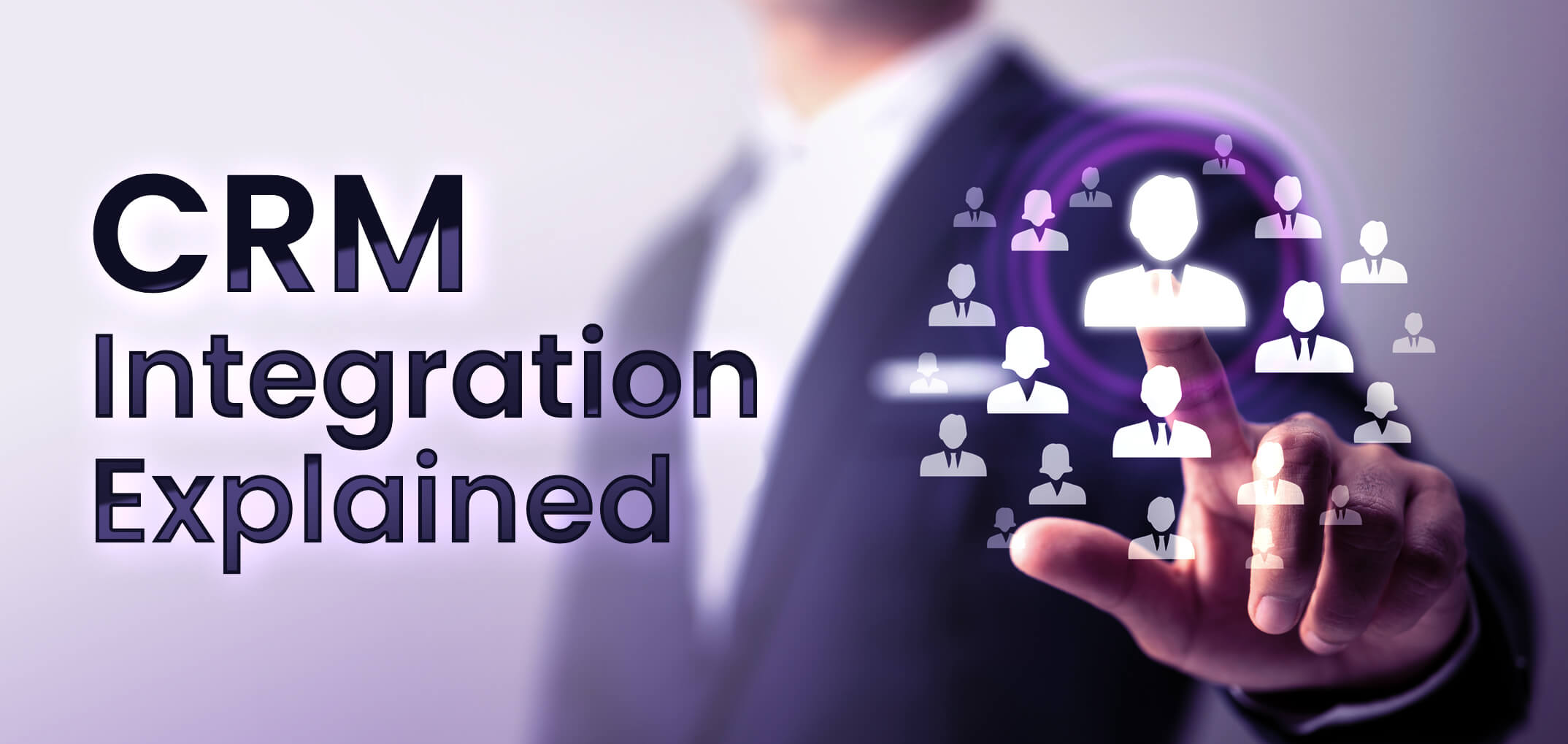Small Business CRM Security in 2025: Protecting Your Data, Securing Your Future
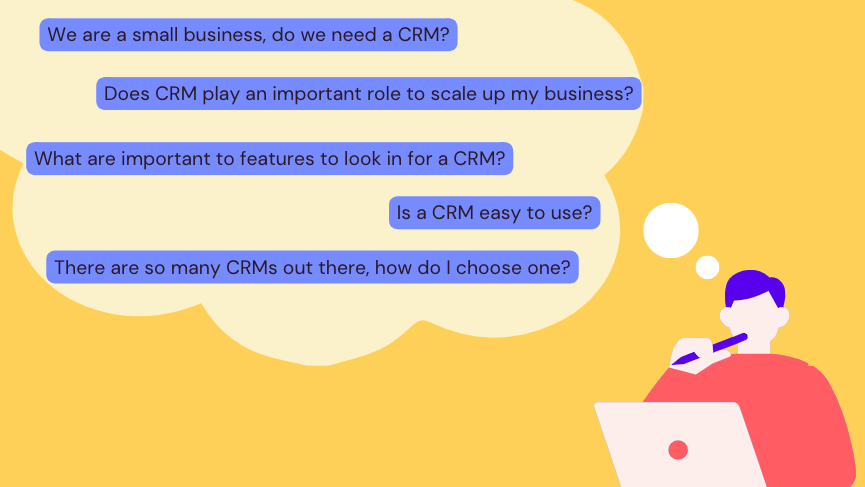
Small Business CRM Security in 2025: A Comprehensive Guide
In the ever-evolving digital landscape, small businesses are increasingly reliant on Customer Relationship Management (CRM) systems to manage their interactions with customers, streamline operations, and drive growth. However, this reliance also exposes these businesses to a growing array of cybersecurity threats. As we approach 2025, the landscape of CRM security is poised for significant changes, driven by advancements in technology, evolving threat actors, and stricter regulatory requirements. This comprehensive guide delves into the key aspects of small business CRM security in 2025, providing insights, best practices, and actionable strategies to protect your valuable data and secure your future.
The Importance of CRM Security for Small Businesses
Before we dive into the specifics, it’s crucial to understand why CRM security is paramount for small businesses. Unlike larger enterprises, small businesses often lack the resources and expertise to implement robust security measures. This makes them attractive targets for cybercriminals. A data breach can have devastating consequences, including:
- Financial Loss: Costs associated with data recovery, legal fees, regulatory fines, and reputational damage.
- Loss of Customer Trust: A breach can erode customer confidence, leading to churn and negative publicity.
- Operational Disruption: Downtime and system outages can disrupt business operations and impact productivity.
- Competitive Disadvantage: A compromised CRM can expose sensitive business information, giving competitors an edge.
Protecting your CRM data is not just about compliance; it’s about safeguarding your business’s survival and ensuring long-term success.
Key Trends Shaping CRM Security in 2025
Several key trends are reshaping the CRM security landscape. Understanding these trends is crucial for small businesses to stay ahead of the curve.
1. Rise of AI-Powered Cybersecurity
Artificial intelligence (AI) is playing an increasingly important role in cybersecurity. AI-powered tools can analyze vast amounts of data to detect and respond to threats in real-time. In 2025, we can expect to see:
- AI-driven threat detection: AI algorithms will be used to identify suspicious activities, such as unusual login attempts, data exfiltration, and malware infections.
- Automated incident response: AI will automate incident response processes, such as isolating infected systems and patching vulnerabilities.
- Predictive threat analysis: AI will be used to predict future threats based on historical data and emerging trends.
Small businesses should explore AI-powered security solutions to enhance their threat detection and response capabilities.
2. Increased Emphasis on Zero Trust Architecture
The traditional perimeter-based security model, which assumes that everything inside the network is trustworthy, is becoming obsolete. Zero trust architecture, which assumes that no user or device is inherently trustworthy, is gaining traction. In 2025, we can expect to see:
- Microsegmentation: Dividing the network into smaller segments to limit the impact of a breach.
- Multi-factor authentication (MFA): Requiring users to verify their identity using multiple factors, such as passwords, biometrics, and one-time codes.
- Continuous monitoring and verification: Constantly monitoring and verifying user and device activity to detect and respond to threats.
Implementing a zero-trust architecture can significantly reduce the risk of data breaches.
3. Growing Sophistication of Cyberattacks
Cybercriminals are becoming more sophisticated in their attacks. They are using advanced techniques, such as:
- Phishing: Deceptive emails and messages designed to trick users into revealing sensitive information.
- Ransomware: Malware that encrypts data and demands a ransom for its release.
- Supply chain attacks: Targeting third-party vendors to gain access to a business’s systems.
- Social engineering: Manipulating individuals to gain access to systems or information.
Small businesses need to be vigilant and implement robust security measures to protect against these threats.
4. Increased Regulatory Scrutiny
Data privacy regulations, such as GDPR and CCPA, are becoming stricter. Businesses that fail to comply with these regulations face hefty fines and reputational damage. In 2025, we can expect to see:
- Increased enforcement: Regulators will be more aggressive in enforcing data privacy regulations.
- Stricter data breach notification requirements: Businesses will be required to notify regulators and affected individuals of data breaches within a shorter timeframe.
- Focus on data minimization: Businesses will be required to collect and store only the data that is necessary for their business operations.
Small businesses need to prioritize data privacy and ensure compliance with all relevant regulations.
Best Practices for Small Business CRM Security in 2025
Implementing the following best practices can significantly improve your CRM security posture:
1. Conduct a Risk Assessment
The first step in securing your CRM is to conduct a thorough risk assessment. This involves:
- Identifying your assets: Determine which data and systems are critical to your business.
- Identifying threats: Identify potential threats, such as malware, phishing, and insider threats.
- Assessing vulnerabilities: Identify weaknesses in your systems and processes.
- Evaluating the impact: Determine the potential impact of a data breach.
- Developing a risk mitigation plan: Implement security measures to reduce the likelihood and impact of data breaches.
A risk assessment should be conducted regularly to identify and address new threats and vulnerabilities.
2. Implement Strong Access Controls
Strong access controls are essential for protecting your CRM data. This includes:
- Multi-factor authentication (MFA): Require users to verify their identity using multiple factors.
- Role-based access control (RBAC): Grant users access only to the data and systems they need to perform their job.
- Regular password updates: Enforce strong password policies and require users to change their passwords regularly.
- Least privilege principle: Grant users the minimum level of access necessary to perform their tasks.
Regularly review and update access controls to ensure they remain effective.
3. Secure Your Data
Protecting your data is crucial. This includes:
- Data encryption: Encrypt sensitive data both in transit and at rest.
- Data backups: Regularly back up your CRM data to a secure location.
- Data loss prevention (DLP): Implement DLP measures to prevent sensitive data from leaving your organization.
- Data masking: Mask sensitive data to protect it from unauthorized access.
Ensure your data is stored securely and protected from unauthorized access.
4. Train Your Employees
Your employees are your first line of defense against cyberattacks. Provide regular security awareness training to educate them about:
- Phishing attacks: Teach them how to identify and avoid phishing emails and messages.
- Password security: Emphasize the importance of strong passwords and password hygiene.
- Social engineering: Educate them about social engineering techniques and how to recognize them.
- Data privacy: Train them on data privacy regulations and best practices.
Regular training will help employees recognize and avoid threats.
5. Implement a Robust Security Infrastructure
A robust security infrastructure is essential for protecting your CRM. This includes:
- Firewalls: Implement firewalls to control network traffic and block unauthorized access.
- Intrusion detection and prevention systems (IDPS): Use IDPS to detect and prevent malicious activity.
- Endpoint protection: Install endpoint protection software, such as antivirus and anti-malware, on all devices.
- Security information and event management (SIEM): Use SIEM to collect and analyze security logs and events.
A well-designed security infrastructure will provide a strong foundation for your CRM security.
6. Monitor and Audit Your Systems
Regular monitoring and auditing are essential for detecting and responding to threats. This includes:
- Security monitoring: Continuously monitor your systems for suspicious activity.
- Log management: Collect and analyze security logs to identify potential threats.
- Vulnerability scanning: Regularly scan your systems for vulnerabilities.
- Penetration testing: Conduct penetration testing to identify security weaknesses.
Proactive monitoring and auditing will help you identify and address security issues before they can cause damage.
7. Choose a Secure CRM Provider
When selecting a CRM provider, prioritize security. Look for providers that:
- Have strong security certifications: Such as ISO 27001 and SOC 2.
- Offer robust security features: Such as encryption, MFA, and access controls.
- Have a proven track record of security: Research their security practices and incident response capabilities.
- Provide regular security updates: Ensure they regularly update their systems to address vulnerabilities.
Choosing a secure CRM provider is a crucial step in protecting your data.
8. Develop a Data Breach Response Plan
Despite your best efforts, a data breach could occur. Develop a data breach response plan that outlines the steps you will take in the event of a breach. This plan should include:
- Incident detection and reporting: Establish procedures for detecting and reporting data breaches.
- Containment and eradication: Outline steps to contain the breach and eradicate the threat.
- Data recovery: Plan for data recovery and business continuity.
- Notification: Determine who needs to be notified, including regulators, customers, and the media.
- Post-incident analysis: Conduct a post-incident analysis to identify the root cause of the breach and implement measures to prevent future incidents.
A well-defined data breach response plan will help you minimize the impact of a breach.
The Role of Emerging Technologies in CRM Security
Beyond the best practices outlined above, several emerging technologies are poised to revolutionize CRM security in 2025.
1. Blockchain for Data Integrity
Blockchain technology offers a decentralized and immutable way to store data. In the context of CRM, blockchain can be used to:
- Ensure data integrity: Prevent unauthorized modifications to CRM data.
- Enhance data provenance: Track the origin and history of data.
- Improve data security: Make it more difficult for attackers to tamper with data.
Small businesses can explore blockchain solutions to enhance the security and integrity of their CRM data.
2. Biometric Authentication
Biometric authentication, such as fingerprint scanning, facial recognition, and voice recognition, is becoming increasingly common. In 2025, we can expect to see:
- Biometric authentication for CRM access: Replacing passwords with biometric authentication for enhanced security.
- Biometric data privacy: Implementing measures to protect the privacy of biometric data.
Biometric authentication can provide a more secure and user-friendly way to access your CRM.
3. Quantum Computing-Resistant Encryption
Quantum computers have the potential to break existing encryption algorithms. In response, researchers are developing quantum computing-resistant encryption algorithms. In 2025, we can expect to see:
- Adoption of quantum computing-resistant encryption: Protecting sensitive CRM data from quantum computing attacks.
- Migration of existing encryption to quantum-resistant algorithms: Ensuring the long-term security of your data.
Staying ahead of the curve with quantum computing-resistant encryption is crucial for long-term data security.
Compliance and Regulatory Considerations
As mentioned earlier, compliance with data privacy regulations is essential. Small businesses need to be aware of the following:
1. GDPR (General Data Protection Regulation)
The GDPR applies to businesses that collect, process, or store the personal data of individuals in the European Union. Key requirements include:
- Data minimization: Collecting only the data that is necessary.
- Data security: Implementing appropriate security measures to protect data.
- Data subject rights: Providing individuals with rights to access, rectify, and erase their data.
Failure to comply with GDPR can result in significant fines.
2. CCPA (California Consumer Privacy Act)
The CCPA applies to businesses that collect, process, or store the personal data of California residents. Key requirements include:
- Right to know: Providing consumers with the right to know what personal information is collected.
- Right to delete: Providing consumers with the right to delete their personal information.
- Right to opt-out: Providing consumers with the right to opt-out of the sale of their personal information.
The CCPA is a model for other states’ privacy regulations.
3. Other Regional and Industry-Specific Regulations
Depending on your industry and location, you may be subject to other regulations, such as:
- HIPAA (Health Insurance Portability and Accountability Act): For businesses that handle protected health information.
- PCI DSS (Payment Card Industry Data Security Standard): For businesses that process credit card payments.
Be aware of all applicable regulations and ensure compliance.
Future-Proofing Your Small Business CRM Security
Securing your CRM is an ongoing process, not a one-time fix. To future-proof your CRM security, consider the following:
1. Stay Informed
The cybersecurity landscape is constantly evolving. Stay informed about the latest threats, vulnerabilities, and best practices. Subscribe to industry publications, attend webinars, and participate in security conferences.
2. Invest in Security Training
Invest in ongoing security training for your employees. This will help them stay aware of the latest threats and best practices.
3. Regularly Review and Update Your Security Measures
Regularly review and update your security measures to ensure they remain effective. This includes conducting regular risk assessments, vulnerability scans, and penetration tests.
4. Embrace Automation
Embrace automation to streamline your security processes. Automate tasks such as security monitoring, incident response, and vulnerability management.
5. Partner with Security Experts
Consider partnering with security experts to help you implement and manage your security measures. They can provide valuable expertise and support.
Conclusion: Securing Your CRM for a Secure Future
In 2025, small business CRM security will be more critical than ever. By implementing the best practices and staying informed about emerging trends, you can protect your valuable data, build customer trust, and secure your business’s future. Proactive measures, continuous monitoring, and a commitment to security are essential for navigating the evolving cybersecurity landscape. By prioritizing CRM security, you’re not just protecting your data; you’re investing in the long-term success of your business. Don’t wait until it’s too late. Start securing your CRM today and be prepared for the challenges and opportunities that 2025 and beyond will bring.

